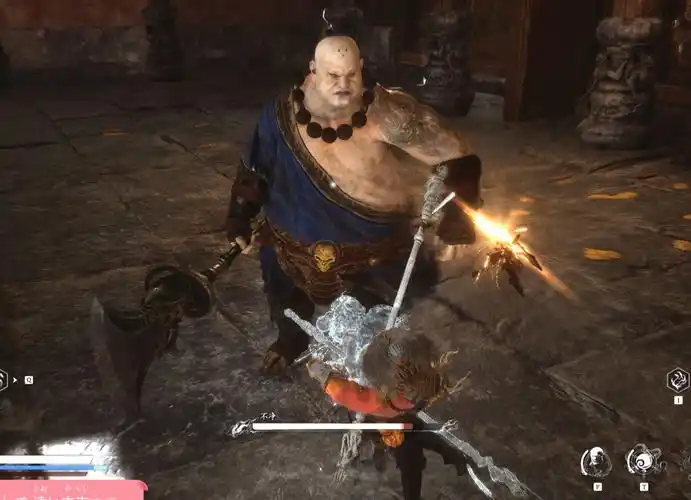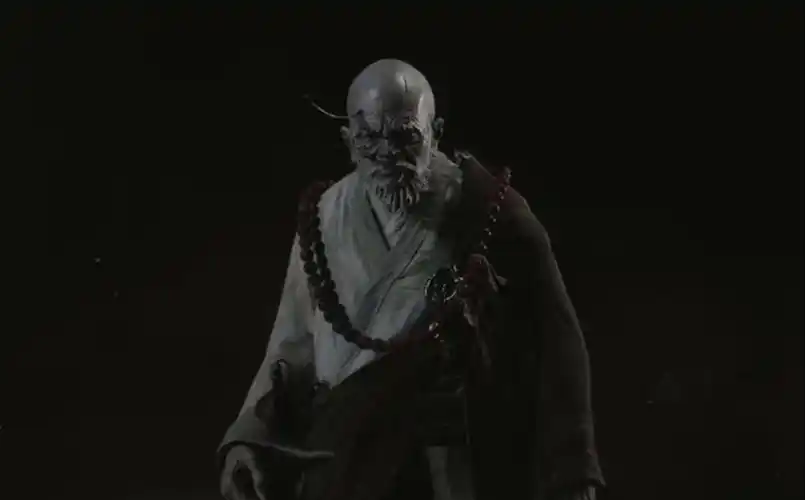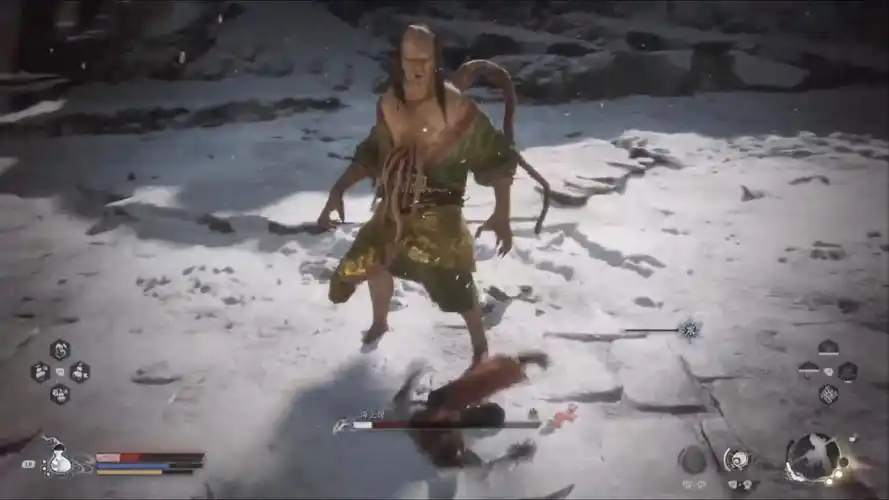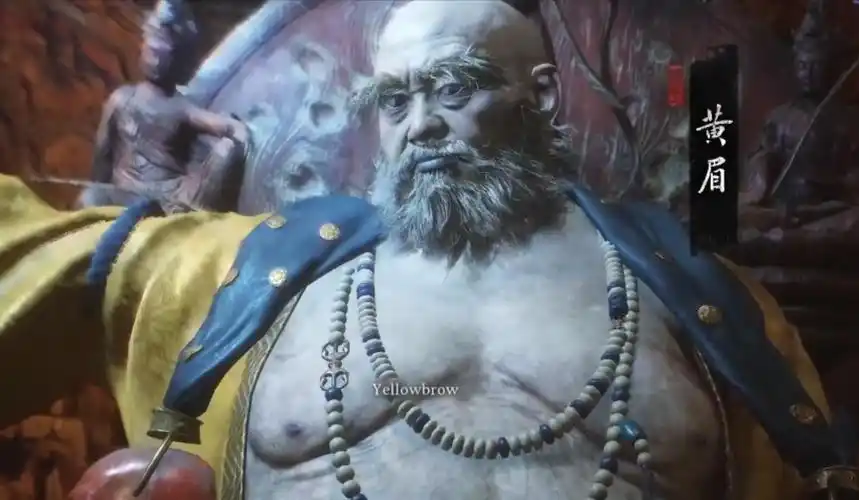In this chapter, the Destined One arrives at the New Thunderclap Temple, where he encounters Non-Void, Non-Pure, Monk from the Sea, and the great Boss Yellowbrow.
Yellowbrow has four disciples named Non-Void, Non-Able, Non-Pure, and Non-White. They correspond to Tangseng’s disciples Wukong, Wujing, Wuneng, and the White Dragon Horse. Previous texts have discussed Non-Able and Non-White; this text will focus on the remaining two disciples of Yellowbrow, Non-Void and Non-Pure.
Tangseng’s eldest disciple, Wukong, is naturally carefree and ultimately achieves Enlightenment and becomes a Buddha. In stark contrast, Monk Non-Void is unable to find release and lives a life shrouded in gloom within the Monastic Life. Non-Void was the first among Yellowbrow’s disciples to follow him and is the character with the most screen time. In the game, Non-Void is always described as having endless scriptures to chant, and he appears to be extremely open-minded. However, compared to Tangseng’s disciple Wukong, Non-Void is extremely hypocritical.
The self-deceiving Monk Non-Void can become murderous from a single dream. Originally a scholar, he once saved a white fox on the road but, haunted by a nightmare of the fox eating people, he killed the fox upon waking and made a fur coat from its pelt. Fearful that the spirit of the white fox would not rest, he entered the Monastic Life and devoted his days and nights to chanting scriptures for her, seeming devout. However, when the Destined One appears before him disguised as the white fox, he still harbors murderous intentions, determined to eradicate the white fox completely.
Traveling through the Minor Western Heaven, the Destined One would see many frozen monks. These zombie monks were deceived by Yellowbrow under the guise of “Ultimate Bliss in the Western Heaven.” In the biting cold, the Minor Thunder Sound Temple provided only a thin Kasaya to each new monk. Non-Void, however, tricked his disciples by claiming that those who froze to death in their Kasayas were insincere and lacked the necessary wisdom, leading to the death of many devout monks. Even during a debate with Non-Able, he argued that killing could be justified for the sake of The Great Way, even to the point of deserving hell. However, when Non-Able exposed him, he resorted to all sorts of sophistry.
The name Non-Pure evokes thoughts of uncleanness or filth, possibly hinting at his role in the game as a master of poison or corrupt powers. His appearance might be filthy, but his eyes twinkle with cunning, warning others not to underestimate his abilities.
Non-Pure is fond of shirking work, dressing much like Tangseng’s disciple, Sha Wujing, though appearing as someone constantly looking to avoid work and responsibilities. However, he is actually quite cunning. In contrast, Wujing is known for his hardworking and enduring character, whereas Non-Pure is characterized by laziness.
The Monk from the Sea is often associated with the spread of Buddhism across the seas and mystical practitioners. In ancient times, thriving maritime trade and cultural exchange facilitated the spread of Buddhism from India to China, Japan, and Southeast Asia, with the Monk from the Sea playing a crucial role. The character Monk from the Sea likely draws inspiration from this history.
In the original text of Journey to the West, Yellowbrow was initially a chime stone attendant in front of Maitreya Buddha. Taking advantage of Maitreya Buddha’s departure to a meeting with the Primeval Lord of Heaven, he stole various treasures and audaciously impersonated the Tathagata Buddha to deceive Tangseng and his companions in the Minor Western Heaven.
The adaptation of the game greatly enriched the character of Yellowbrow, transforming him from a bold and cunning figure into a villain who possesses his own logic in dealing with matters, excels at exploiting human weaknesses, and adeptly manipulates others with his words, stopping at nothing to achieve his goals, leaving a profound impression on the audience. After Wukong’s death, Yellowbrow returned to Minor Western Heaven and stole various treasures from Maitreya Buddha, planning to establish what he envisioned as the true Vulture Peak. Moreover, his desire for revenge was strong, as he lured all the Immortals who had once helped Sun Wukong defeat him to Minor Western Heaven, where he could dominate them.
In the game, Yellowbrow often appeared disguised as Maitreya Buddha, but he was easily recognizable by his clothing alone. Yellowbrow’s attire was yellow and extremely lavish, in stark contrast to the real Maitreya Buddha’s simple garb.
Furthermore, some of Yellowbrow’s actions in the game were quite ridiculous, akin to those of a clown. One of his signature features was the Wheel of Merits on his back. This Wheel of Merits, seemingly solemn and sacred, was actually just a wooden carving covered with a layer of gold paint. As a formidable Yaoguai, Yellowbrow theoretically could have earned a real Wheel of Merits through virtuous deeds and cultivation. However, he chose a completely different path. Unwilling to admit he was a villain and reluctant to do genuine good deeds, he instead used a fake Wheel of Merits to conceal his true nature, an act that was not only ironic but also comical.
